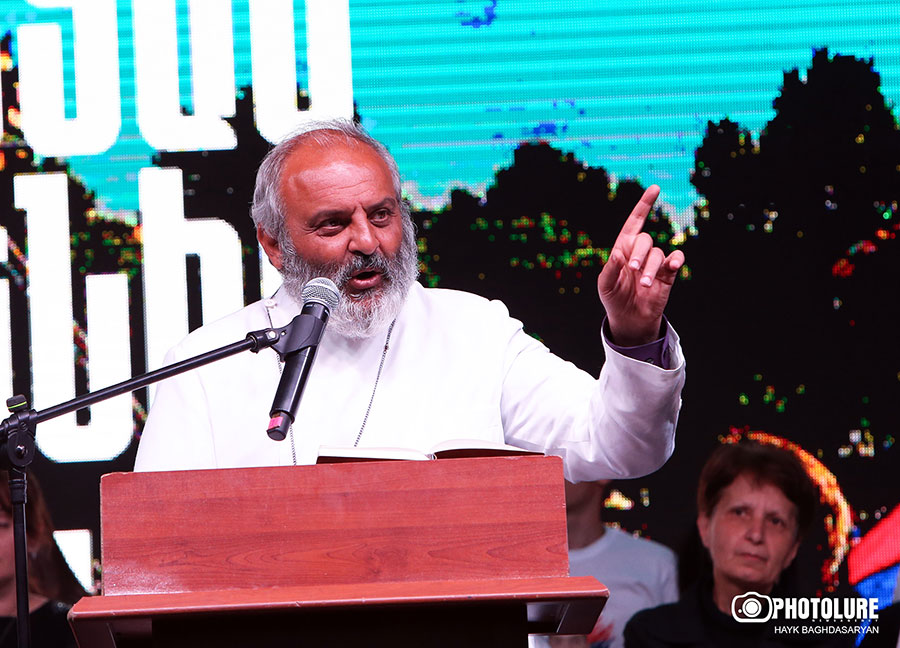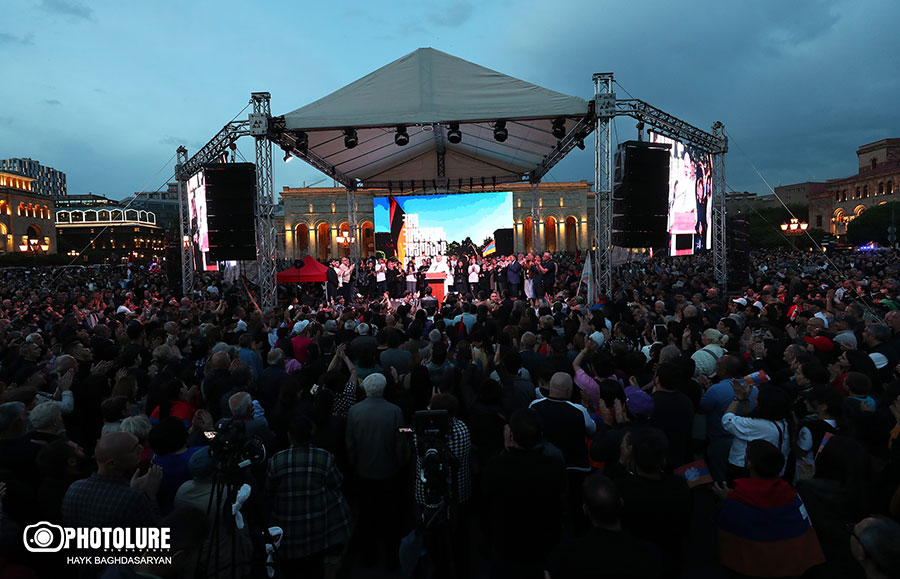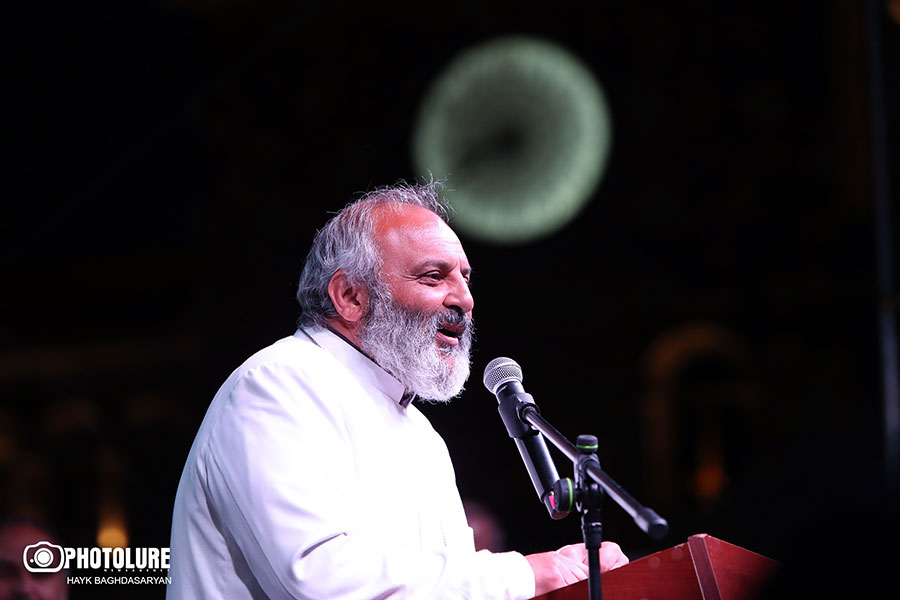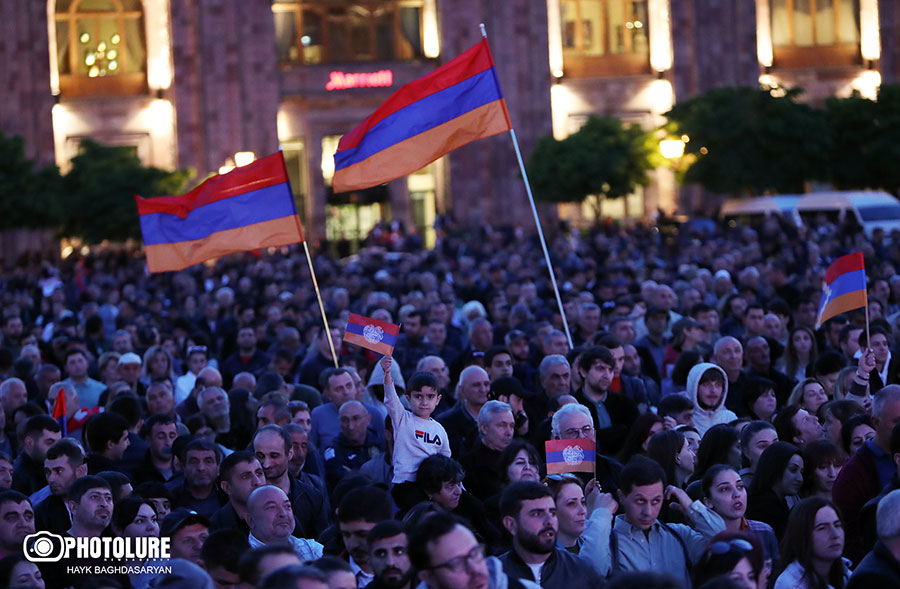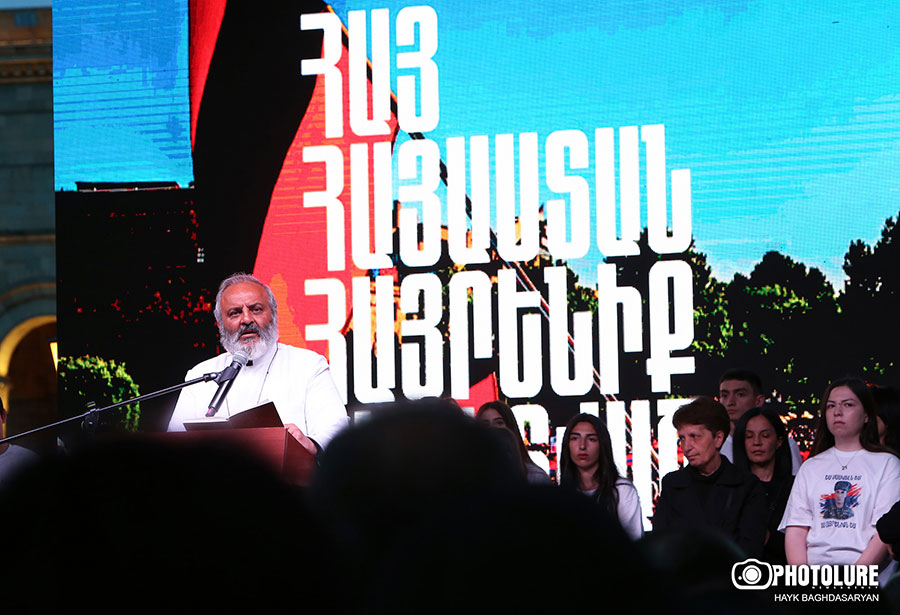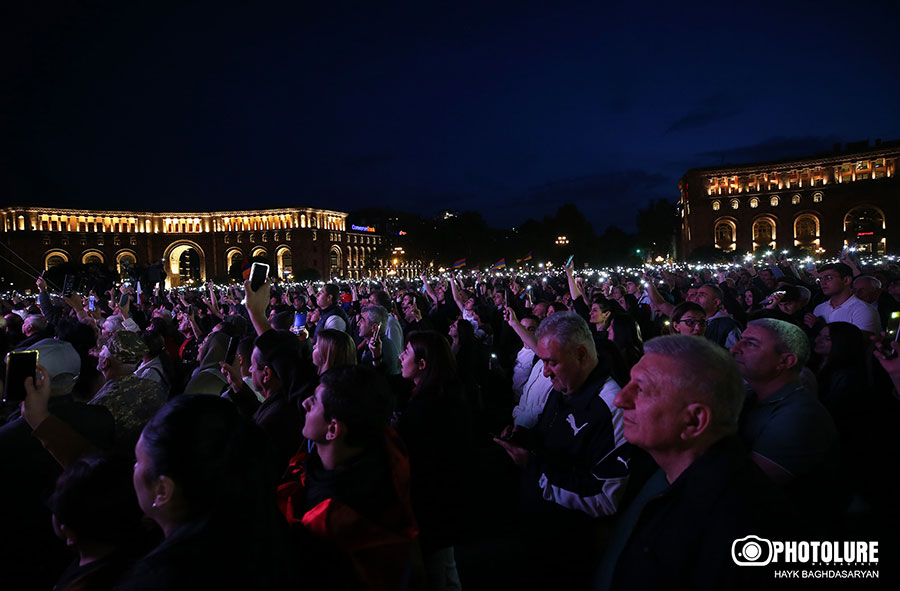An Armenian archbishop leading ongoing antigovernment protests vowed to keep trying to oust Prime Minister Nikol Pashinyan as he addressed thousands of supporters who again rallied in Yerevan on Sunday.
Archbishop Bagrat Galstanyan insisted that his protest movement sparked by Pashinyan’s decision to cede territory to Azerbaijan is “little by little” getting closer to a parliamentary vote of no confidence in Armenia’s government. He labelled Pashinyan as a liar who has led the country to ruin and is unable to deal with its grave challenges.
“I am out fighting today because we live at a time of stolen joy and infamy when a wonderful section of our homeland, our beloved Artsakh (Nagorno-Karabakh), is lost, when all the borders of our homeland are in danger and when we are stuck in an environment of lies and hatred,” Galstanyan told the crowd.
Read also
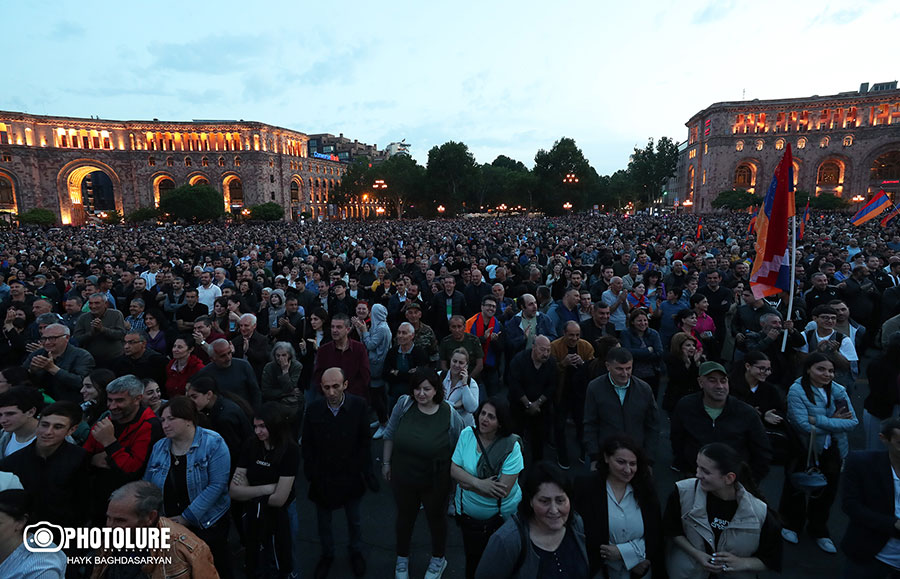
“We need a new government, a government of the people, a caring, suffering government, a government of reconciliation,” he said one week after deciding to take protests against the territorial concessions to Azerbaijan from the affected border villages in Armenia’s northern Tavush province to Yerevan.
The opposition Hayastan and Pativ Unem blocs represented in the Armenian parliament pledged to jointly attempt a no-confidence vote when the protests reached the capital on Thursday. They control only 35 seats in the 107-member National Assembly, lacking a single vote to formally put a motion of censure. That vote could potentially come from Ishkhan Zakarian, a nominally independent deputy who defected from Pativ Unem in 2022. Galstanyan said that in recent days he twice met with Zakarian and that the latter “didn’t refuse to join this process.”
More importantly, the opposition would also have to win over at least 18 other deputies representing Pashinyan’s Civil Contract party. Senior Civil Contract lawmakers have expressed confidence that none of their pro-government colleagues will break ranks to vote against Pashinyan. They made a point of reaffirming their allegiance to the prime minister on social media after Galstanyan attracted tens of thousands of people to Yerevan’s central Republic Square on Thursday.
Galstanyan indicated that he will try to pile up the pressure on the ruling party’s parliamentary group through more street protests. He urged supporters to again block roads in and outside Yerevan on Monday morning. At least 48 of them were detained by police during such protests staged on Saturday.
Still, Galstanyan did not set a date for his next major rally, saying that it will be announced when there is more clarity on the motion of censure as well as the key question of who should replace Pashinyan as prime minister.
The Armenian constitution requires parliament factions demanding a no-confidence vote to simultaneously nominate a candidate for the post of prime minister. Galstanyan said he will discuss potential candidates with the parliamentary opposition as well as other groups and individuals supporting his movement.
The cleric, who will turn 53 later this month, again did not rule out the possibility of his own candidacy while acknowledging legal hurdles to it. In any case, he said, the next prime minister must run an “interim government” and not be affiliated with any political group.
The constitution bars dual citizens from serving as prime minister. Galstanyan received Canadian citizenship when he lived in Canada and headed the local diocese of the Armenian Apostolic Church from 2003-2013. He took over the church’s Tavush diocese after returning to Armenia.
The four border areas which Pashinyan’s government agreed to give up used to be occupied by small Azerbaijani villages captured by Armenian forces in 1991-1992. For its part, Azerbaijan seized at the time large swathes of agricultural land belonging to several Tavush villages. None of that land will be given back to Armenia under the terms of a border deal reached by Yerevan and Baku on April 19.
Four of those villages are adjacent to the areas in questions. Many of their residents strongly oppose the land handover, saying that it would isolate their communities and make them far more vulnerable to Azerbaijani attacks.
Pashinyan has said that the unilateral concessions are necessary for preventing Azerbaijani military aggression against Armenia. His critics say that he is on the contrary encouraging Baku to demand more territory from Armenia use force for that purpose. They include two former Armenian foreign ministers and other retired senior diplomats who set up an association last month.
One of those ex-diplomats, Vahagn Melikian, presented a report drawn up by the Pan-Armenian Diplomatic Council (PADC) during Sunday’s antigovernment rally. The group insisted that the land handover is illegal and dangerous for Armenia in the absence of any maps or other agreed mechanisms for delineating the entire Armenian-Azerbaijani border.
Melikian dismissed Pashinyan’s arguments that Baku and Yerevan have agreed that the border delimitation must be based on the 1991 Alma-Ata declaration in which newly independent ex-Soviet republics pledged to recognize each other’s Soviet-era borders. He argued that the declaration does not refer to any concrete maps showing those borders in detail.



















































